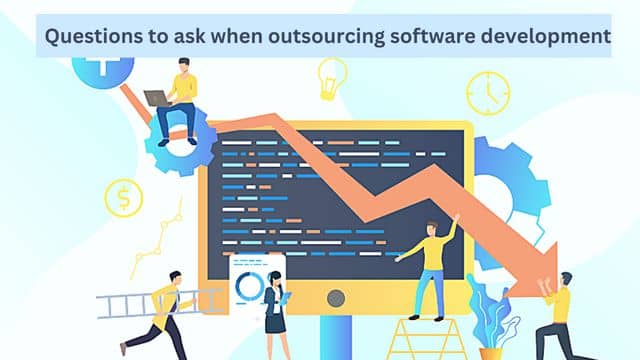Kindred Ventures foresees a ‘massive explosion of startups’ courtesy of AI
Last week, we talked with Kindred Gambles, a small, nine-time-old, San Francisco- grounded early-stage adventure establishment that, despite investing in a lot of incipient startups — further than 100 to date — takes a generalist approach, investing in AI, climate tech, consumer internet companies, crypto deals, fintech startups, health startups, mobility startups and the outfits developing tools and structure.
It’s a little like trying to boil the ocean, yet the establishment’s two managing directors Steve Jang and Kanyi Maqubela have had enough success that Kindred’s investors last time agreed to let them up the figure vastly. Indeed, after closing a$ 56 million fund in 2019 and a$ 101 million fund in 2021, Kindred last time closed a$ 200 million fund — plus, for the first time, a latterly- stage fund to back growth-stage companies in Kindred’s own portfolio and outside it. For the ultimate, they raised$ 112 million in commitments, bringing their total means under operation to$ 550 million, including some special-purpose vehicles that they’ve raised along the way.
The outfit’s biggest wins to date — Uber, Coinbase, Postmates have come from an angel fund, but the outfit has no deficit of promising newer bets, including on Humane, a still-covert incipiency innovated by former Apple platoon Imran Chaudhri and Bethany Bongiorno that entered a seed investment from Kindred, and whose$ 100 million Series C round in March was also led by Kindred.
We talked about a range of effects with Jang and Maqubela and we’ll have a podcast from that converse available soon; in the meantime, the excerpt below is part of our discussion that centered on the future of startups, and whether the ongoing advancements in AI’ll mean further of them, or far smaller.
TC Because people are so interested in all effects of AI right now, can you talk a bit about the companies that you have funded?
SJ We’ve concentrated a lot on frontier technology over time, and going after 10- to 20- times- story- bow companies. Humane is one of them. We’ve invested in a company called Hourone AI, which is a videotape AI company out of Tel Aviv in Israel. We’re early investors in Tonal, which has used a lot of computer vision and machine literacy historically and is now upgrading a lot of what it’s doing in that area and bringing forward a lot of AI-related features. We’ve companies that are in robotics; we’ve companies in force chains. They’re all tapping into the occasion that they’re seeing, with not only generative AI but artificial AI, too.
On the generative AI front, there are these foundation model companies, as well as, right now, numerous further operation subcaste companies, tackle companies, and structure and driving companies. But over time, it’s still not clear to me whether we’ll have four companies in the world or four bazillions, given how empowering AI appears to be.
KM Oh, gosh, there will be way, way, way more companies. It’s part of the trend of moving up the abstraction subcaste and allowing further people to come builders. It used to be the case that if( wanted) to make a commodity, you demanded to have a certain skill set, which was actually confined to a really nice small member of the population. But that first surge of computing gave everybody superpowers and each posterior surge since has only given further superpowers. And so what we’re now looking at — and you’re seeing this nearly across the mound is cardiologists that can affiliate with really complex large, real-time datasets and do really intriguing manipulations of them without having to decode. You’ve got contrivers that can design full-mound websites and full-mound platforms and operations on the web without having to decode — and that’s just at the position of law. There are so numerous other ways that intelligence is compounding because of these systems, so I suppose there’s going to be a massive explosion of new startups that are enabled by the fact that we’re now allowing further people to have access to further extremely sophisticated leveraged software tools.
Are you at all upset that this explosion could destroy the adventure business? Where is the scale if everyone is able of running their own company with these tools?
SJ This question was asked a lot right around the time of AWS and iOS and Android. These three effects were each launched( around the same time) and people wondered does this mean that anyone can start a company. The capability to get started is much easier, which is good for society.
As for investors, the day of having enough controlled access to startups and this phony network play in your favor — grounded on birth and brand — perhaps that game has opened up. What we love about it’s that it gets numerous further entrepreneurs into erecting their product ideas out, and I suppose that’s overall great. So I suppose for the old guard that might be problematic, but for the new guard of investors, whether it’s angel investors, small seed finances, or large lead seed finances, this is great.
But if everyone has these super sophisticated new tools, doesn’t everything ultimately come commoditized?
KM We actually had a discussion about commodity analogous last night. I guess the first thing to suppose about is there are presumably a horizonless number of ways to customize information, particularly when it comes to media and content, and that customization actually results in extraordinary consumer fat and extraordinary power for the end stoner. The capability to consume largely individualized content, to produce largely individualized content, to have that content be flexible — applied across the assiduity, by the way, so in health care and care collaboration, communication, internal health, fellowship, and social networking is really, really important.
The other thing that I suppose is worth noting is we’re in a really intriguing place right now. Steve mentioned a period of time when this amazing convergence of new platforms all came to request at the same time. also, there was a enough long period after that, where we were each just sort of enjoying mobile and SaaS. Now, we’re going to need a new way of allowing about how business models get actuated, new criteria, and new benchmarking, and that’s really instigative, particularly for an early-stage investor who’s fastening on products and the starting point of invention. But it’s going to look different than the last cycle and that’s by design the same way that the mobile and SaaS were veritably different from the first internet cycle, which looked veritably different than the cycle before it.






